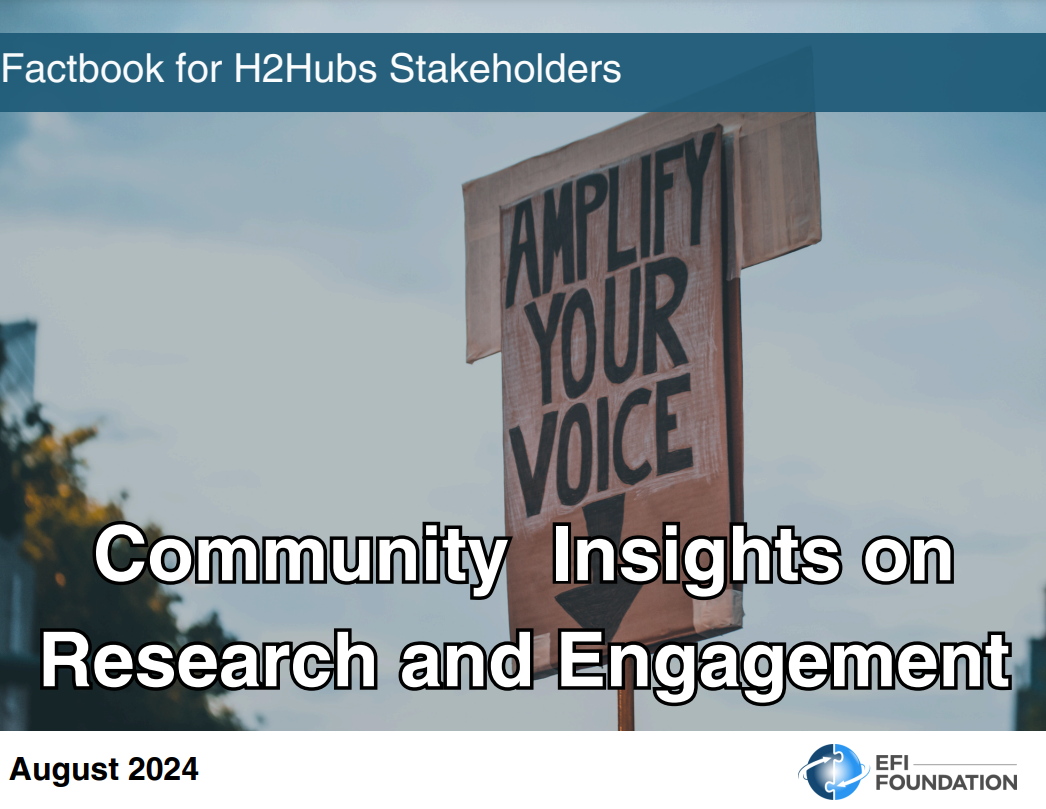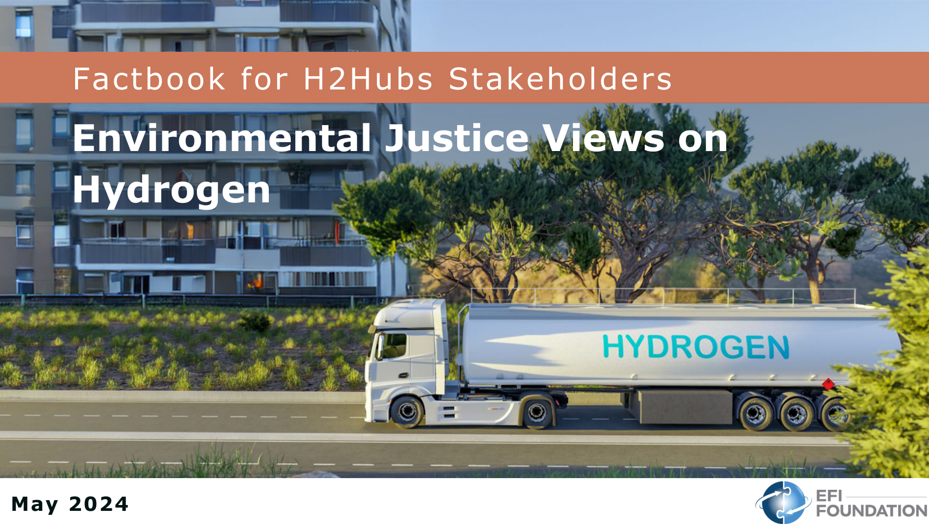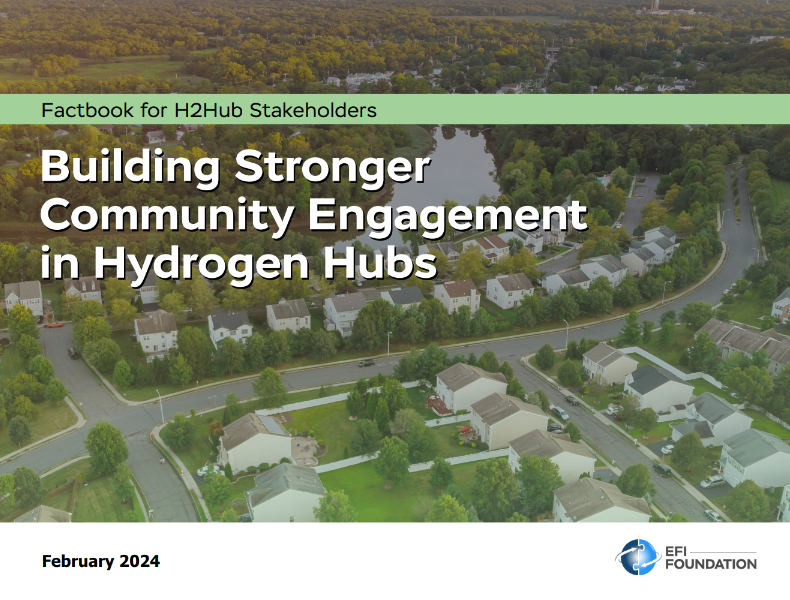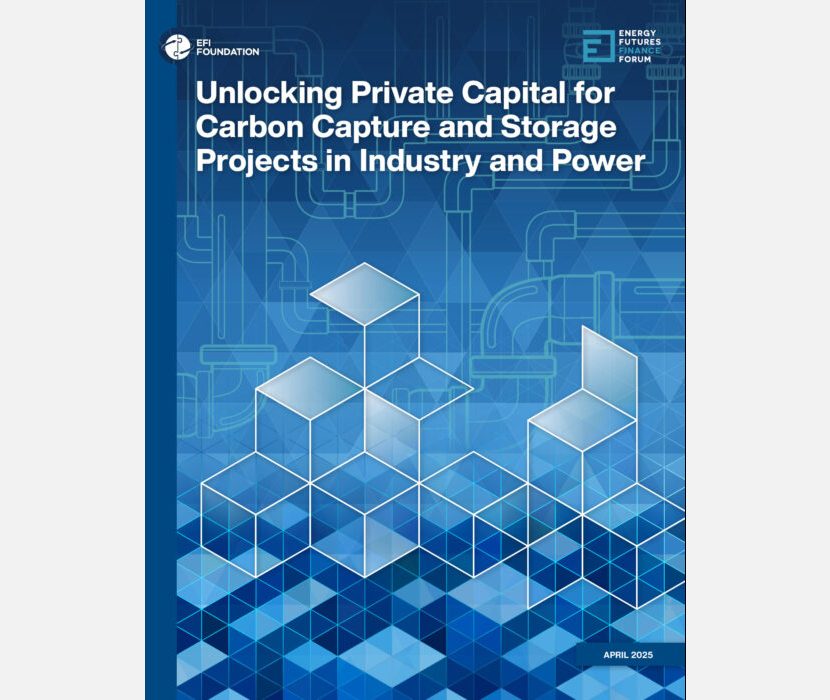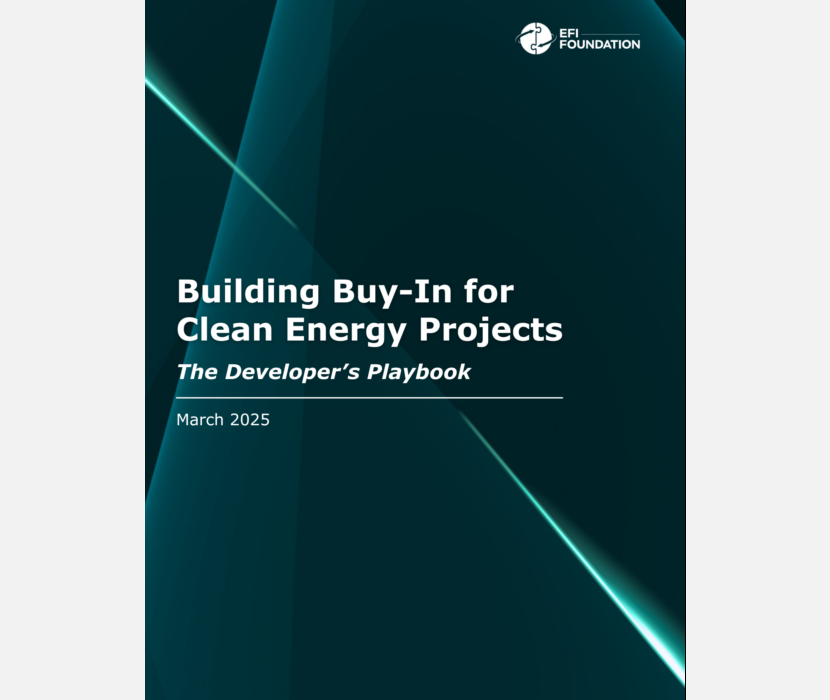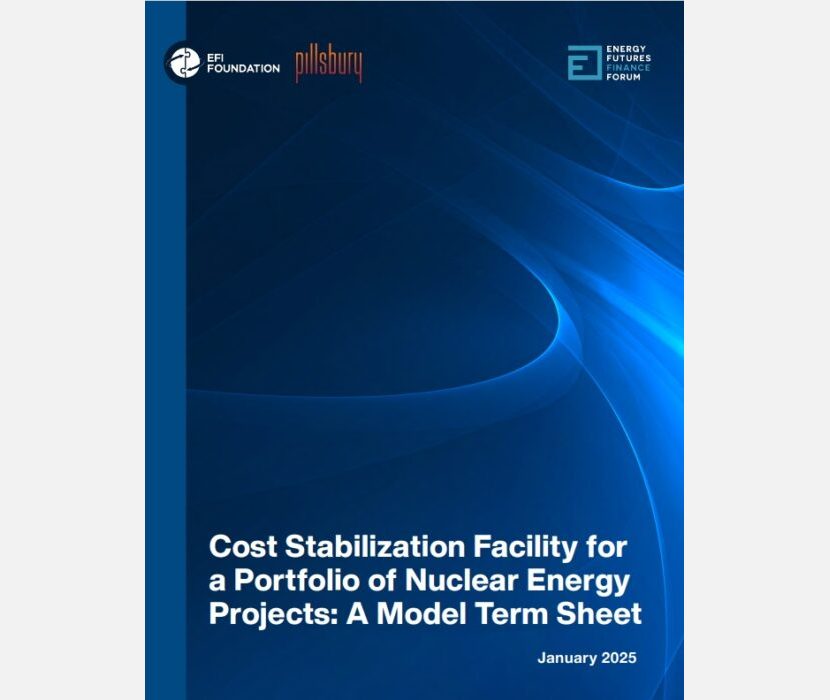Factbook for H2Hubs Stakeholders: Community Insights on Research and Engagement (August 2024) is an EFI Foundation (EFIF) factbook that addresses communities’ needs for information as the United States seeks to develop a clean hydrogen economy. The factbook explores effective channels for communication, with research drawing on two efforts: a survey of approximately 2,600 individuals in states selected for funding by the U.S. Department of Energy’s (DOE’s) Regional Clean Hydrogen Hubs (H2Hubs) and an analysis of the DOE’s recent H2Hubs listening sessions with communities. The role of this factbook is to uplift community-driven research and insights in support of ongoing conversations among DOE, communities, hub developers and their partners.
The introduction of DOE’s H2Hubs demonstration program, with an $8 billion allocation to create a national clean hydrogen market, underscores the significance of community engagement. Communities near the planned projects are eager for more information on safety, economics, and potential environmental and climate impacts. Identifying and prioritizing the research areas that matter most to these communities is important to build trust and effectively direct research efforts.
EFIF’s research on the development of U.S. hydrogen markets includes community input, aiming to ensure that our work is responsive to community needs. This approach provides valuable insights for DOE and H2Hubs partners to help foster more efficient project implementation and stronger public support. Building on our previous research on community engagement, this factbook presents community preferences for the hydrogen research agenda.
The following are takeaways from the data collected so far:
- Trust, safety, and respect are crucial factors in engagement, particularly for environmental justice (EJ) groups. Of all survey respondents, 78% cited trust as a top engagement need, while 77% requested a safe environment and 76% valued respect in that category of top engagement.
- Building trust and fostering a sense of safety among community members begins with providing comprehensive, clear information. Of those respondents who prioritized trust, 58% said that open communication and transparency from H2Hubs partners builds trust. For those who emphasized safety, one-third indicated that increased information sharing makes them feel safer.
- Research on air quality impacts and Community Benefits Agreements (CBAs) are top priorities, especially for EJ groups. More than three-quarters of respondents overall, and more than 83% of EJ group respondents are interested in more information on CBAs and hydrogen’s potential impacts on air quality.
- Respondents generally prefer that H2Hubs developers reach them at community centers and at home and want to be contacted weekly. A majority of respondents, 58%, favored community centers, followed closely behind 57% of respondents who prefered to be reached at home.
As the H2Hubs initiative progresses, the insights gathered in this factbook provide a road map for effective community engagement and research prioritization. By addressing the information needs and engagement preferences outlined in this factbook, DOE, H2Hubs developers, and other partners can foster a collaborative environment that supports both technological innovation and community well-being.
Related Content
(Share this post with others.)


